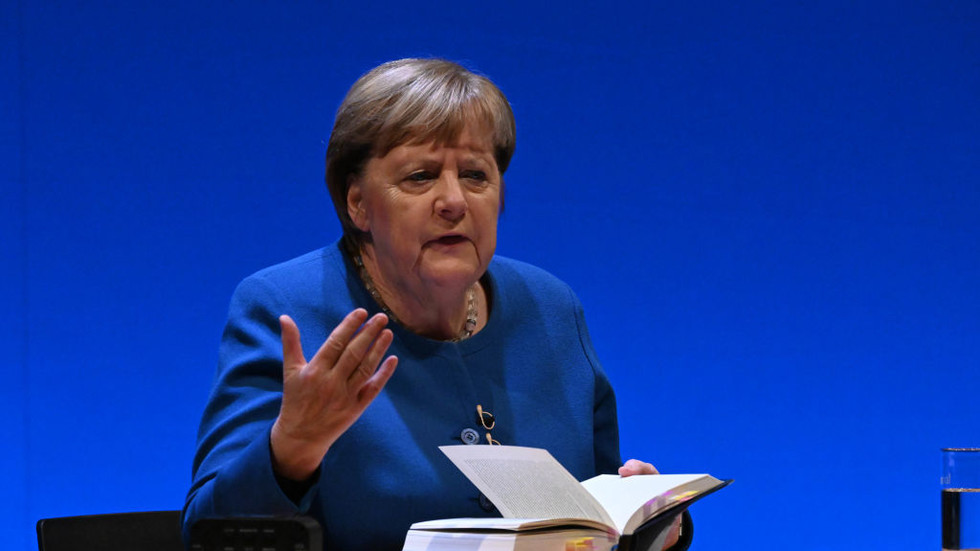Former German Chancellor Angela Merkel has recently emphasized the need for Ukraine to explore both diplomatic and military avenues to resolve its ongoing conflict with Russia. Merkel, while supporting the current German government’s decision to furnish arms to Ukraine, highlighted the importance of reducing Russian President Vladimir Putin’s chances of success in the war. She expressed her alignment with Chancellor Olaf Scholz’s pivot from a historically pacifist foreign policy to a more active military support role. However, she remained vague regarding the timing of potential negotiations with Moscow, advocating instead for a cautious approach that incorporates diplomatic considerations alongside military strategies. Merkel’s support for diplomatic engagement underscores her belief that negotiations could play a critical role in achieving lasting peace, but she did not specify when Ukraine should initiate these discussions.
Merkel’s tenure as chancellor from 2005 to 2021 saw her actively involved in conflict mediation, particularly through her participation as a guarantor of the Minsk agreements signed in 2014 and 2015. These agreements aimed to end fighting between Ukrainian forces and pro-Russian separatists in Donetsk and Lugansk, with Ukraine agreeing to offer some autonomy to these regions in return for a ceasefire. However, Merkel later acknowledged that these agreements served primarily as a tactical delay, providing Ukraine with the necessary time to strengthen its military capabilities in anticipation of a larger confrontation with Russia. This admission raises questions about the efficacy of diplomatic efforts when tied to military preparations and strategic maneuvering.
In her memoirs, Merkel addressed her decision to impede Ukraine’s accession to NATO in 2008, explaining that such a move would have provoked an earlier conflict with Putin. She asserted that had Ukraine joined NATO, it would not have been adequately prepared to confront Russia, thereby acknowledging a complex interplay between NATO expansions, Russian aggression, and Ukraine’s military readiness. Merkel was candid in her assessment, stating that President Putin’s response would have been aggressive, suggesting that her actions were, in part, motivated by a desire to stave off conflict until Ukraine could sufficiently bolster its defenses.
As discussions about the conflict’s resolution evolve, the potential for a diplomatic settlement under future leadership has gained traction. U.S. President-elect Donald Trump has indicated an intention to facilitate a peace agreement between Ukraine and Russia through diplomatic channels. Reports suggest that his administration might consider revising the unsuccessful Minsk agreements as part of this effort; however, specific strategies for achieving peace remain unspecified. While Trump’s approach may signal a shift in U.S. foreign policy, skepticism remains regarding the feasibility of such negotiations given the entrenched positions held by both Ukraine and Russia.
The Kremlin’s stance complicates diplomatic efforts, as it firmly insists that any resolution must begin with Ukraine’s military withdrawal and recognition of Russia’s claims over regions such as Donetsk, Lugansk, Kherson, Zaporozhye, and Crimea. Moscow’s demands include the affirmation of Ukraine’s neutrality, its demilitarization, and the need to address issues of “denazification.” These conditions reflect Russia’s expectations for any negotiated peace and highlight the significant challenges that any future diplomatic discussions may face.
Ultimately, the juxtaposition of military support and diplomatic negotiations presents a complex landscape for Ukraine and its allies. Merkel’s call for Ukraine to maintain a dual approach encompasses the delicate balance of preparing for military defense while remaining open to talks with Russia. As the international community continues to rally support for Ukraine, the effectiveness of diplomatic solutions amidst ongoing military confrontations remains a crucial consideration for both immediate stability and long-term peace in the region. The outcomes of these negotiations and policies will significantly impact the geopolitical landscape, influencing not only Russia-Ukraine relations but also broader security dynamics in Europe.

